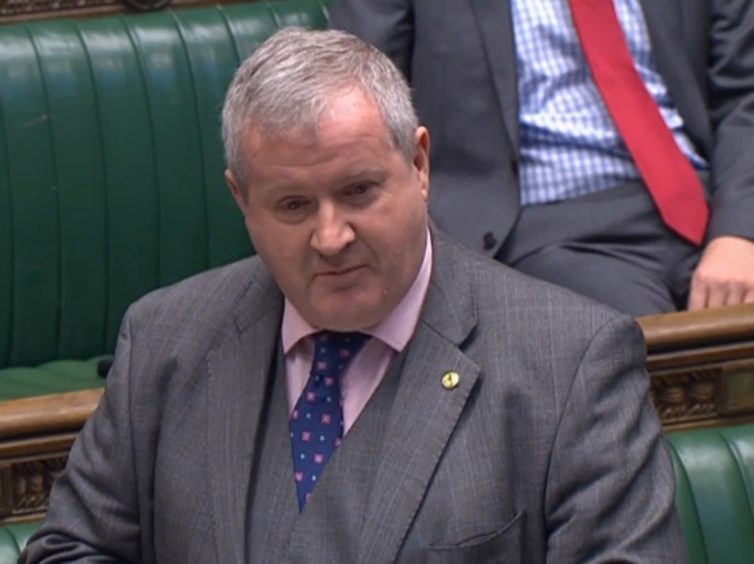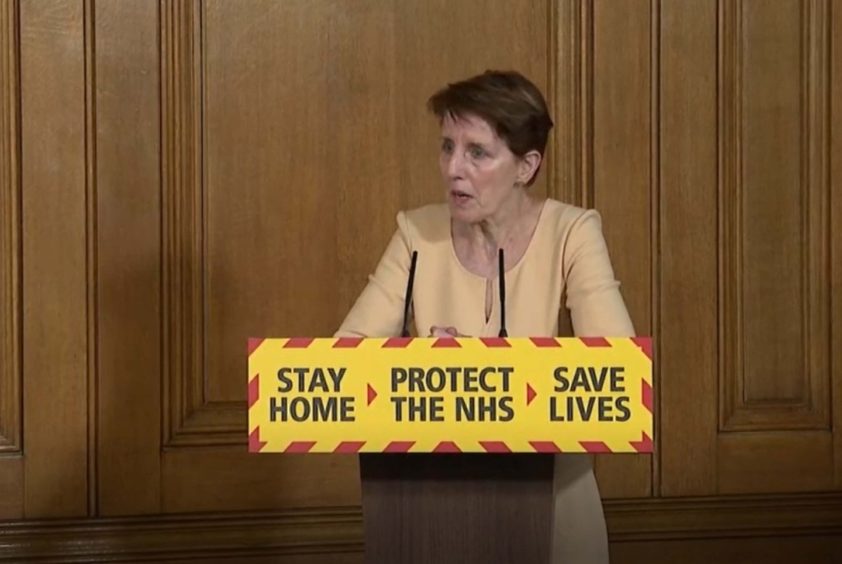Chancellor Rishi Sunak has warned the nation to expect “tough times” as Britain’s fiscal watchdog suggested the UK economy could fall off a cliff edge in the months ahead.
In its first estimate of the economic toll taken by the crisis, the Office for Budget Responsibility (OBR) said unemployment could hit 3.4 million, leaving around one in 10 of the working population without a job.
The OBR predicted that if the lockdown remained in place for three months around 35% could be wiped off GDP in the April-June period – the biggest economic dent in more than two hundred years.
Addressing the report, Mr Sunak told the daily Downing Street press conference that had the UK Government not taken the actions it had, “the situation would be much worse”.
“These are tough times and there will be more to come,” he said.
“As I have said before, we cannot protect every business and every household.
“But we came into this crisis with a fundamentally sound economy, powered by the hard work and ingenuity of the British people and British businesses.
“So while those economic impacts are significant, the OBR also expects them to be temporary, with a bounceback in growth.”
Asked by the Press and Journal if the current benefits system could cope with mass unemployment, following warnings from the institute for fiscal studies earlier this week, Mr Sunak said it was and also ruled out introducing any new relief in the form of universal basic income (UBI).
UBI is an unconditional, regular payment made to every citizen and is being considered by several European countries to offset the damage of the coronavirus crisis.
Mr Sunak said: “I don’t think universal basic income is the right response to this, I think Universal Credit is working well, obviously DWP staff are under strain like many other organisations across the country because they’re dealing with people being sick and away as well.
He added: “We’ve injected extra resources to deal with the particular nature of this crisis into the welfare system, whether that’s strengthening Universal Credit temporarily for this year, working tax credits or indeed local housing allowance, the local council tax support all of those interventions which will total several billion pounds.
“I do believe all of those things are getting to the people they need to.
The OBR based the outlook on a scenario where the lockdown lasts three months followed by a partial lifting for three months.
But the independent forecaster said, in this case, there will be a sharp bounceback in the economy, with gross domestic product likely to jump 25% in the third quarter and a further 20% in the final three months of 2020.
SNP Westminster leader Ian Blackford MP said the OBR scenarios underlined the need for the UK government to fix “the serious gaps in the support” being offered to millions of people who have lost their jobs or seen their incomes reduced.
He said: “This analysis demonstrates the huge damage coronavirus is doing to our economy – and the urgent need for the UK government to fix the serious gaps in financial support for the millions of people who have lost their jobs or seen their incomes reduced.
“The Chancellor must ensure that businesses have access to cash to stay afloat – and that all households get the support they need. This must include a guaranteed minimum income for everyone and strengthened welfare protections – so no one is left behind.”
The analysis came as the Department of Health said 12,107 patients have died in hospital after testing positive for the virus in the UK as of 5pm on Monday, up 778 from the previous day’s total, while confirmed cases reached 93,873.
Referencing the figures, Public Health England’s Yvonne Doyle acknowledged that the UK’s response to the outbreak could have been different if more was known about the virus at an earlier stage.
She said: “We have learned so much that I wish I had known in January because undoubtedly we perhaps could have done things differently, but we have just worked tirelessly month in and month out and it has been a privilege to do so.
“One of the great questions for me is, ‘When was this virus first around?’ and if I had known that it would have been a wonderful public health gift to have been able to, perhaps, anticipate what it would do.”
We later asked Ms Doyle to explain why, if there was still intensive care and hospital beds free across the UK, hundreds of people were dying in care homes and at home.
She responded: “Nobody who needs NHS care in an emergency should be denied that.
“There may be very good reasons why people from care homes are not being admitted to hospital, at no time has it been said to me, anywhere, that the NHS would not accept a patient that needed to be admitted.”
NHS England’s Stephen Powis said clinical decisions on admitting patients were made every day and the pandemic did not affect that.
“One of the purposes of ensuring that NHS capacity always stays ahead – not just in the ICU beds but actually in the general beds on the ward as well – has been to allow clinicians to have those discussions and make those decisions in the way that they always do make those decisions,” he said.

